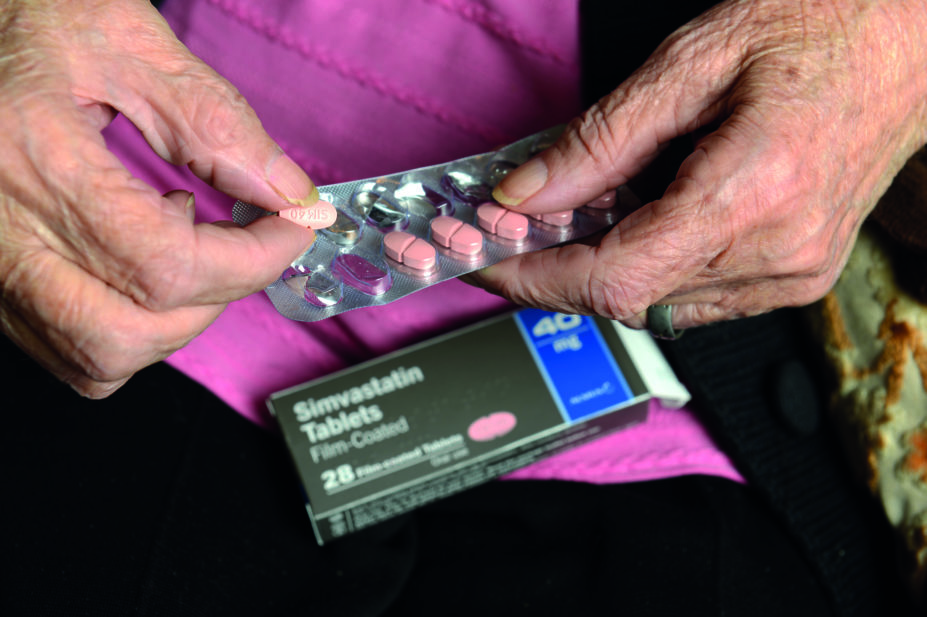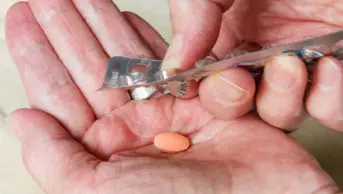
Jack Sullivan / Alamy Stock Photo
Taking statins may speed up the onset of Parkinson’s disease in people who are susceptible, say researchers in the United States.
Using data from a large health insurance database, researchers matched 2,322 patients with newly diagnosed Parkinson’s disease with an equal number of individuals without the disease but who were the same age and gender.
They then identified which patients were taking a statin and how long they took them before developing symptoms of Parkinson’s.
The results showed that use of statins was associated with a higher risk of Parkinson’s disease — contradicting some other research showing a lower risk or no risk at all, the researchers noted.
They also found that the association between statin use and Parkinson’s was most pronounced in the initial phase of cholesterol-lowering treatment, suggesting that the drugs “may facilitate the onset of preclinical Parkinson’s disease”.
There also appeared to be a difference with type of statin, with an odds ratio of 1.58 (P<0.0001) for lipophilic compared with 1.19 for hydrophilic (P=0.25) statins[1]
.
Taking statins increased the chances of Parkinson’s disease by 95% (P<0.0001) overall and the increased risk for the first year of taking statins was 82%, compared with 75% for a year to two and a half years and 37% for longer than that.
Reasons for inconsistencies
Researcher Xuemei Huang, a professor of neurology at Pennsylvania State University College of Medicine, said one of the reasons suggested for previous inconsistent results is that higher cholesterol has been linked with lower occurrence of Parkinson’s disease.
“This made it hard to know if the statin protective effect was due to the drug or pre-existing cholesterol status.”
But he added that their results showed that “statin use was associated with higher, not lower, Parkinson’s disease risk, and the association was more noticeable for lipophilic statins, an observation inconsistent with the current hypothesis that these statins protect nerve cells.
“In addition, this association was most robust for use of statins for less than two and a half years, suggesting that statins may facilitate the onset of Parkinson’s disease.”
The researchers said they accounted for hyperlipidaemia when calculating the results.
Professor Huang added that more research was needed to clarify what was going on and people taking statins should continue to do so.
“We are not saying that statins cause Parkinson’s disease, but rather that our study suggests that statins should not be used based on the idea that they will protect against Parkinson’s,” he added.
Anyone with a family risk or history of Parkinson’s may want to discuss the pros and cons further with their doctor, he advised.
More research needed
David Dexter, deputy director of research at Parkinson’s UK, said the true effect of statins is still far from clear, and further research is needed to shed light on this complex topic.
“While the study does indicate a higher risk of Parkinson’s in someone who has taken statins, the impact was time-dependent, observed only in people taking statins for periods of less than two and a half years; the effect disappeared if statins were taken for longer.
“If statins are associated with an increased risk of developing Parkinson’s, we would expect that the longer someone takes statins, the higher the risk would be, but the opposite was shown with this study.”
He added: “Statins lower the bad form of cholesterol levels much quicker than non-statin cholesterol-fighting drugs — which showed no impact on Parkinson’s risk — so one possibility is that it is this rapid fall in bad cholesterol which relates to the increased risk of developing Parkinson’s.”
References
[1] Guodong L, Sterling LW, Kong L et al. Statins may facilitate Parkinson’s disease: insight gained from a large, national claims database. Mov Disord 2017;32(6)913–917. doi: 10.1002/mds.27006


